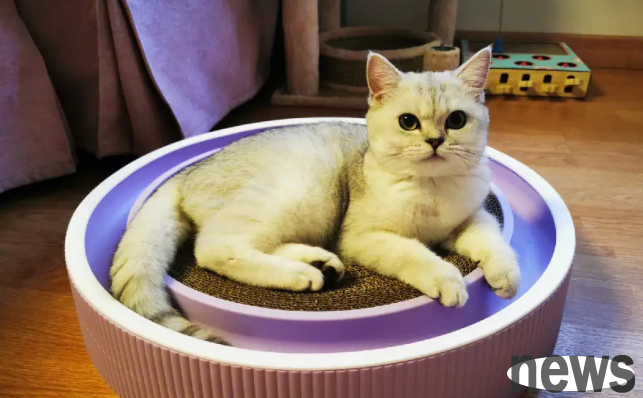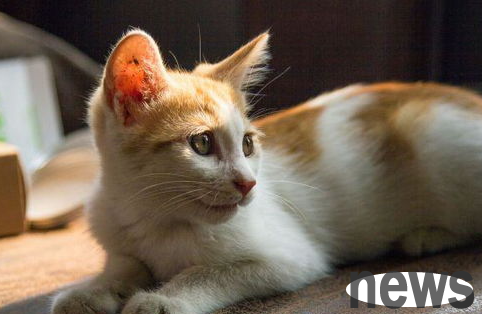The cat trembles involuntarily, maybe not because of cold, but because of disease. What is involuntary tremor? Unconscious muscle tremor also becomes muscle bundle tremor, describing the muscle uncontrollable tremor, twitching or spasm. This can als...
The cat trembles involuntarily, maybe not because of cold, but because of disease. What is involuntary tremor? Unconscious muscle tremor also becomes muscle bundle tremor, describing the muscle uncontrollable tremor, twitching or spasm. This can also happen to cats or other animals for various reasons. Sometimes, tremors may be caused by genetic factors or cold weather, which cannot be improved and will not affect health. However, tremors may also be caused by symptoms caused by the disease, which can be life-threatening in severe cases. We should pay attention when the cat's body continues to tremble.

Causes of cat tremors
1. The whole body trembles
My cat often trembles, what's going on?
· Hypoglycemia
When a cat doesn't eat for a long time, its blood sugar will drop, resulting in hypoglycemia. When suffering from digestive problems such as vomiting, diarrhea or constipation, it can also lead to low blood sugar. There are also some cats with anorexia who refuse to eat due to irritability or physical discomfort, causing their bodies to tremble.
· Fever
When cats have high fever, they will start to tremble due to chills. Their normal body temperature is between 38-39.5℃, which is higher than 39.5 degrees Celsius. Viral infection caused by high fever may cause them to tremble uncontrollably. Therefore, when cats' ears or meat balls are overheated, we should test their body temperature in time to avoid trembling caused by high fever.
· Hypothermia
Most healthy adult cats do not have any problems maintaining their body temperature, but kittens, especially newborn cats, cannot maintain their own body temperature. They may experience hypothermia. It is important to use heating pads or other warming methods to provide warmth.
· Poisoned
Cats are curious animals. They may inadvertently come into contact with toxic plants, chemicals or other toxic substances, causing trembling and vomiting. They should be taken to the hospital for treatment as soon as possible.
· Pain
The cat's pain caused by illness or injury can also make it tremble continuously.
· Epilepsy seizures
Epilepsy seizures can also cause muscle tension and tremor. These seizures can occur for a variety of reasons, including heat stroke, toxicity, metabolic disease, fever, epilepsy, allergic reactions, or drug overdose.
· Shock
Shock may also cause cats to tremble and tremble. Shock may occur due to serious illnesses after accidents or trauma. Other signs of shock include cold limbs, pale gums, weakness and a faster heart rate.
· Ear problems
The head shaking and constantly scratching the ears is a common sign caused by ear problems. It is very likely to be caused by infections such as bacteria, yeast and/mites (you can use cotton wool/paper towel to get your ears to judge further).
· Sleep
Cats may have short convulsions due to complete relaxation during sleep, which usually lasts for 6-8 minutes, intermittently.
· Fear
phobia is the persistent and excessive fear of specific stimuli, such as fireworks. Excessive anxiety responses are characteristic of phobia and have shown that once a terror event is experienced, any event or memory associated with it is sufficient to produce a response. The most common phobia is associated with noise such as fireworks or thunderstorms.
· Stress
Cats are sensitive animals, and it is difficult to find out what problems are causing them to be troubled. Changes in the environment, noise outside the window, and owners' outings may cause emotional outbursts of cats, and may even begin to tremble involuntarily due to tension or anxiety. First we should do a physical examination for it, rule out possible physical illnesses, and then try other ways to make cats happy to relieve their stress.

2. Local tremor
· Head tremor
The cat's head usually does not tremble in a conscious state, and the ears and mouth do not belong to the entire head. When they are doing very stimulating exercises, they may cause epilepsy seizures, causing body twitching. Epilepsy seizures are caused by abnormal functioning in a certain area of the brain, especially the cerebral cortex.
· Leg tremor
This is a rare trembling area that may cause spasms due to calcium deficiency. It may also be caused by fractures, arthritis or other leg diseases, the inner side of the ankle is curved and unable to return to the straightening state, so the cat feels weak in the legs, causing tremors.
If your cat trembles for a long time or has a high frequency of tremor, and is accompanied by loss of appetite, vomiting, diarrhea or other complications, please go to the hospital immediately. Doctors usually conduct in-depth physical examinations on the cat to determine the root cause of the cat's tremor.
In addition, remember to observe some behavioral changes in cats in daily life, which is very useful when doctors consult.
Diagnosing tremor in cats
In all cases, whole blood count (CBC), biochemical analysis and urine analysis are recommended. It is important to rule out metabolic disorders such as hypoglycemia (hypoglycemia) or kidney disease. Include creatine kinase to assess the possibility of muscle disease.
· Screening for chest and abdominal X-rays (X-rays) are usually within the normal range, and in some cases, spinal ray photos may be recommended.
· Myelography (using dye to study the spine) can be recommended to evaluate the presence of tumor or disc disease.
· CT (Computed Tomography) scan/MRI (Magnetic Resonance Imaging) will help detect structural changes in the brain and/or spine.
· Cerebrospinal fluid (CSF) can confirm encephalitis.
· Electromyography (EMG) will help diagnose related neuromuscular diseases.
How to treat and stop tremors
Since tremors are actually only triggered by underlying diseases, the main purpose of treatment is to target and treat the disease itself.
If it is tremor caused by drugs, usually the doctor will recommend an alternative drug to prevent tremor; if it is suspected that it is tremor caused by some toxin, after the doctor has asked about his recent daily diet, the doctor will usually clean up his stomach and intestines and prescribe the right medicine according to the current cat's physical condition, and at the same time supplement the nutrition needed by the body. If tremor is associated with neurological diseases, surgery may be used to treat primary neurological diseases. To control the phenomenon of tremor, doctors will recommend using drugs to control chicken movement.
The tremors of a cat in a sleeping state are mostly caused by overexcitation or fatigue. In interaction with the cat, it is recommended to control the amount of exercise a little and not overwork.
In addition, it is worth noting that the recovery of the symptoms that cause cat tremor mostly depends on the successful treatment of the underlying disease. Although most diseases can be cured, parents still need to observe the cat's diet and activity during the treatment period, communicate with the doctor in time, and check regularly.